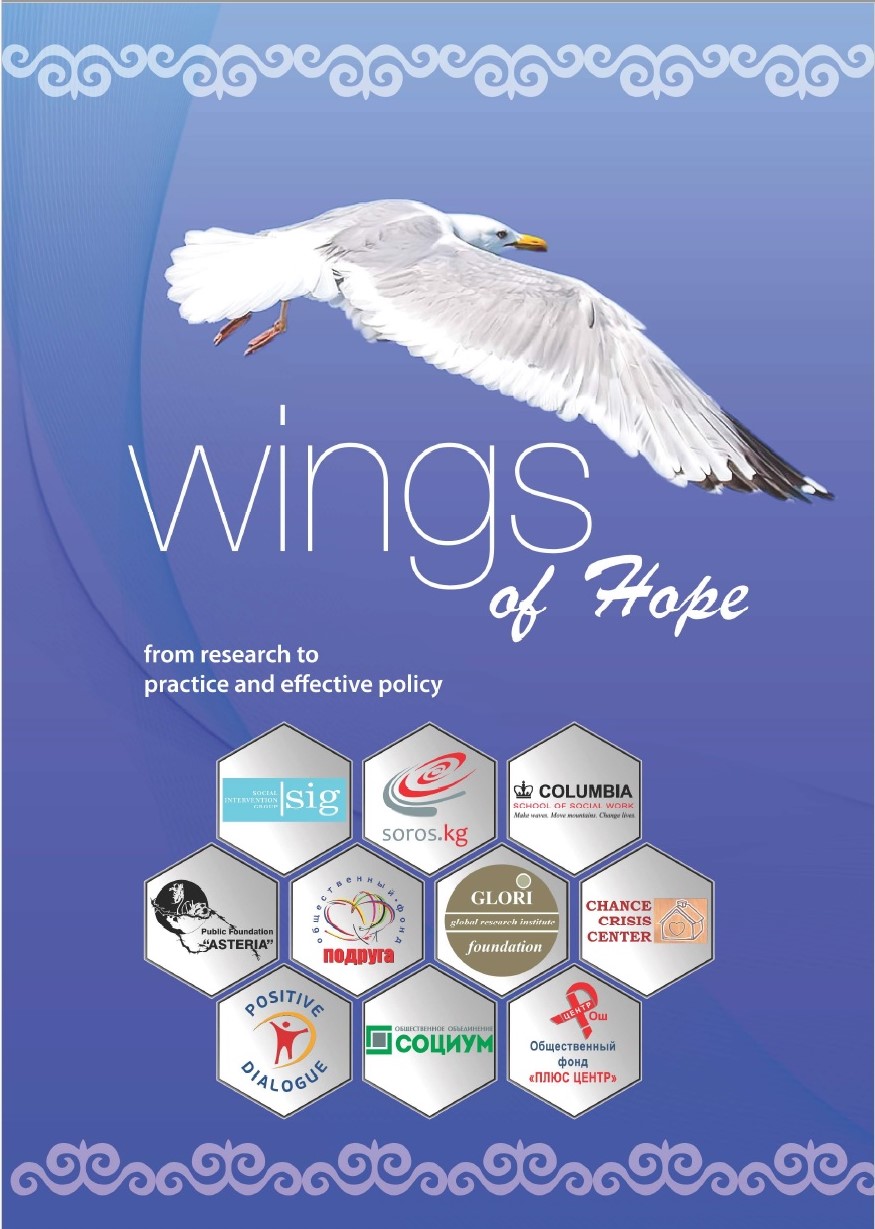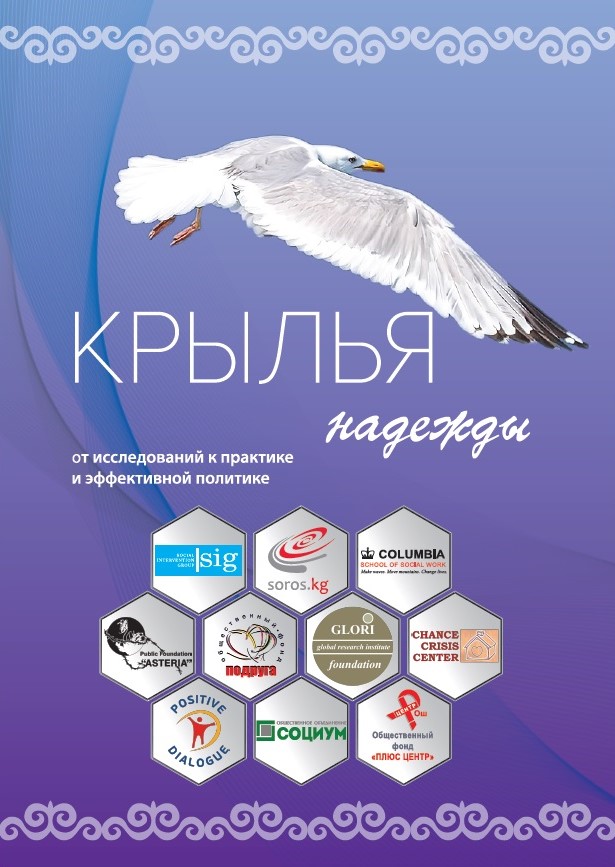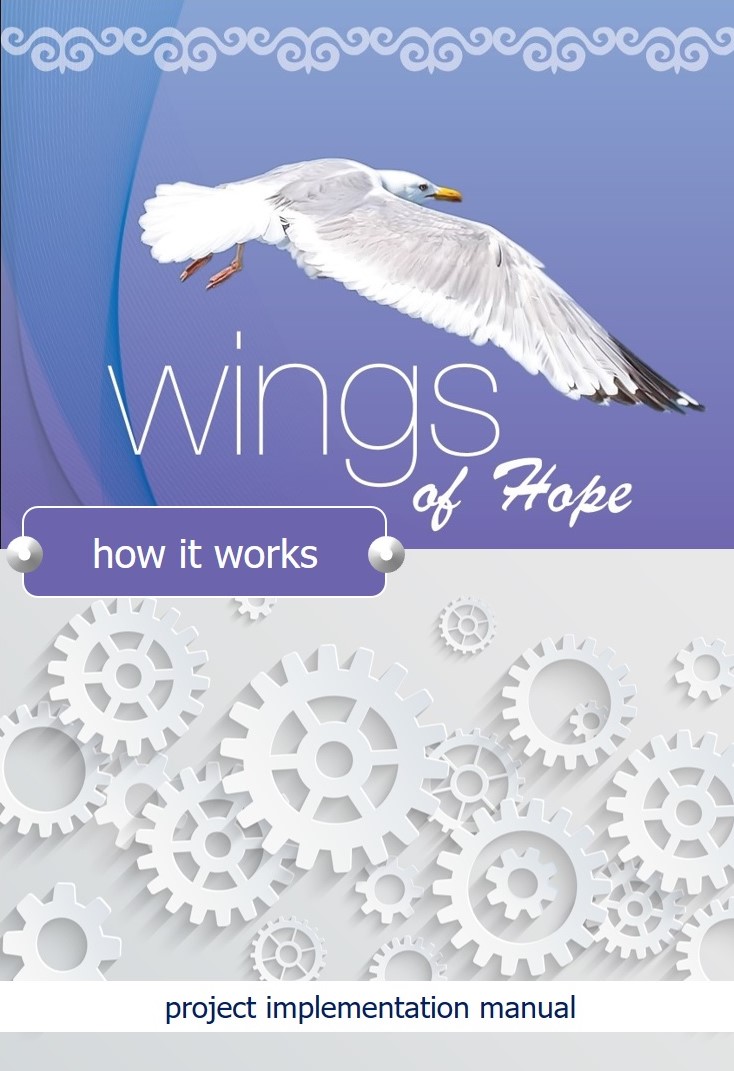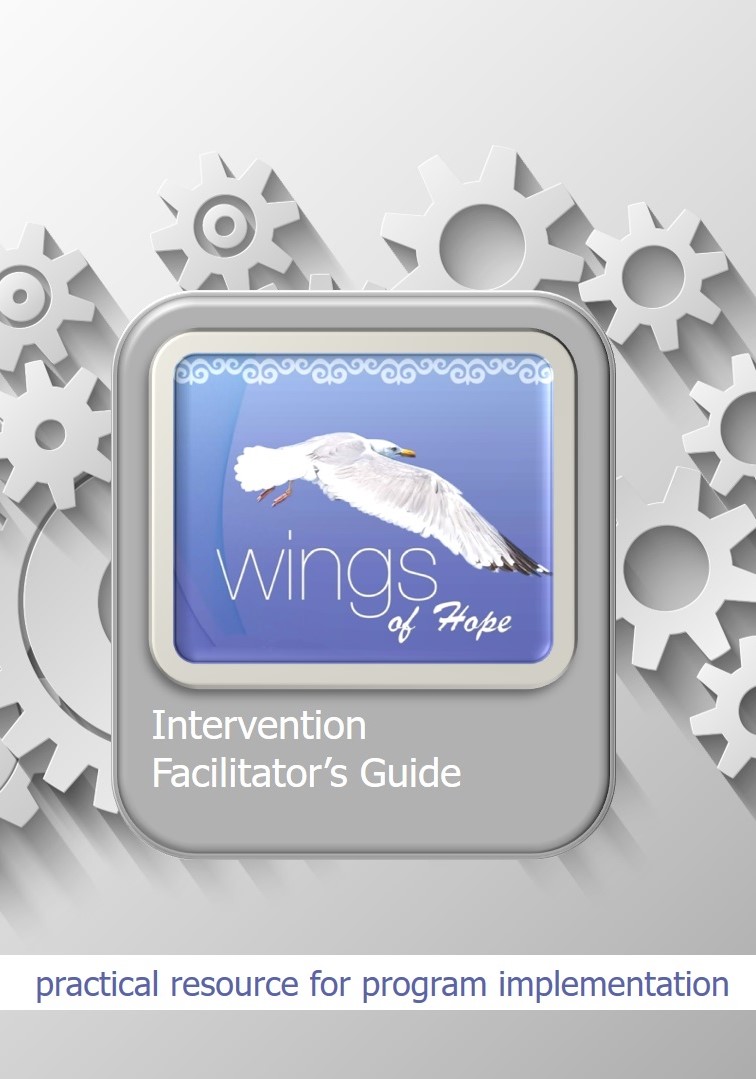This summary report describes the implementation and key findings of WINGS of Hope project, which utilized an intervention based on the evidence-based model of the WINGS intervention using an integrated SBIRT model (stands for Screening, Brief Intervention, and Referral to Treatment). Clinical trials of WINGS in the U.S., Kyrgyzstan, and more recently in India, have demonstrated effectiveness of the model in identifying and addressing gender-based and intimate partner violence.
In Kyrgyzstan, the Global Research Institute (GLORI) Foundation implemented the project in 2013-2016 with a grant support from Open Society Foundations and Soros Foundation-Kyrgyzstan, in collaboration with non-governmental organizations Asteria, Sotsium, and Crisis Centre “Chance” in Bishkek, and Podruga, Positive Dialogue and Plus Center in Osh, with investigative and adaptation guidance from Dr Louisa Gilbert, Dr Timothy Hunt and Dr Tina Jiwatram-Negron of the Columbia University Social Intervention Group.
The project reached 213 women who use drugs and women engaged in sex trading in the towns of Osh and Bishkek. All participants were provided with individual sessions that included psychoeducation/raising awareness of different types of IPV and GBV, screening for different types of violence, safety planning, enhancing social support to address violence, goals setting and building motivation to address GBV and HIV, identifying GBV-related services with linkage and referral to the services, and overdose prevention components. The training was followed-up by the voluntary rapid HIV testing.
Gender-based violence (GBV) remains a serious public health and social threat, globally and in the Kyrgyz Republic, contributing to a host of negative physical and mental health consequences for women and their children. Despite recent gender-sensitive legislation and measures in Kyrgyzstan aimed at overcoming gender-based violence, there are no sustainable and evidence-based mechanisms in place for changing behavioral stereotypes and developing negative attitude towards violence by government agencies, local communities and the victims’ social network.
Women who use drugs and women, engaged in sex trading, remain the most vulnerable to violence. Violence against these groups is systemic, and perpetrated by individuals and some government agencies’ staff, including police, whose primary mission should be the protection of their rights and providing them with services regardless to their background, behavioral specifics and other factors.
When you download and read the report, you’ll better understand why there is a critical need for structural and community level interventions to redress gender-based violence among these key affected populations of women:
- Only 12% of 213 WINGS of Hope project participants, i.e. women who use drugs and women engaged in sex trading, reported that had never experienced either IPV or GBV.
- 15% of the WINGS of Hope participants experienced violence from police staff.
- 37% of police staff who took part in trainings arranged for them as a part of WINGS of Hope, thought that women who use drugs and abuse on alcohol, deserve being humiliated and violated.
- 53% of police staff who took part in trainings arranged for them as a part of WINGS of Hope, thought that a man using violence against his wife is a private matter that shouldn’t be discussed outside the couple.
- Only 6% of women who use drugs and women engaged in sex trading, who participated in the 3-year WINGS of Hope project, applied for police help after experiencing violence.
- Only 18% of the 213 WINGS of Hope participants applied to a medical professional seeking help after the episodes of violence.
- 45% of the 213 WINGS of Hope participants reported that the main reason why they don’t disclose episodes of violence and don’t ask for help, is feeling embarrassed about it.
- 39% of the WINGS of Hope participants reported having been exposed to traumatic experiences, including sexual harassment and violence, before the age of 17.
- 46% of the WINGS of Hope women participants (n=213) confirmed that have ever experienced overdose, and stated that they knew approximately 465 people who experienced overdose in the past 3 months.

… after attending individual intervention sessions and motivational interviews, according to the 3-month follow-up survey, participants experienced significantly fewer intimate partner and gender-based violence incidents of any kind, including severe and minor physical, severe and minor sexual, verbal and psychological incidents than what they had experienced at baseline. Participants also reported significant reductions in illicit and injection drug use, ability to create and maintain safer sex trading context, as well as increased access to GBV-related services.
The authors of this overview have made every effort to cite data and text credit. If any sources are not properly referenced, this is unintentional. Please contact the authors if any resource is either not cited or cited incorrectly, and this will be updated in future versions.
The Global Research Institute is solely responsible for the contents of this report that do not necessarily represent the opinions of Soros Foundation-Kyrgyzstan, Open Society Foundations and / or other partner agencies and / or experts.
English version of the WINGS of Hope report with 3-year consolidated findings that we developed collaboratively with partner implementing agencies and consultants at Columbia University Social Intervention Group, is available for download through this link:




















 Please visit the page where the WINGS of Hope Implementation Manual can be found >>>
Please visit the page where the WINGS of Hope Implementation Manual can be found >>>  Please visit the page where the WINGS of Hope Intervention Facilitator’s Guide can be downloaded >>>
Please visit the page where the WINGS of Hope Intervention Facilitator’s Guide can be downloaded >>>